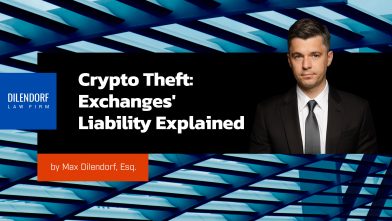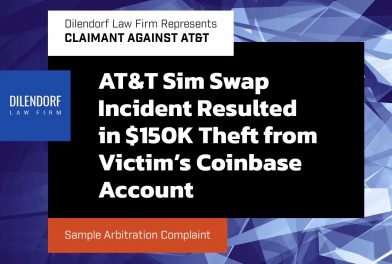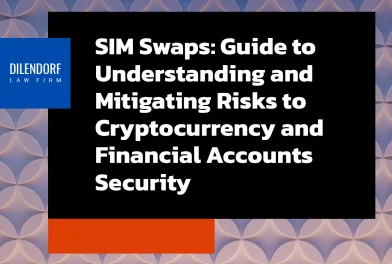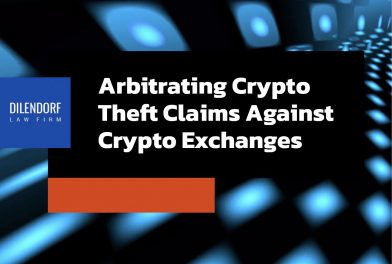When Virtual Tokens are Securities in the United States
During 2017, more than $3 billion in capital was raised by blockchain developers through initial coin offerings (ICOs, but more formally known as token generation events) of virtual tokens. This amount was significantly more than what was raised by blockchain firms through traditional venture-capital deals.
Considering the recent success of ICOs, it would be easy for developers to overlook the serious legal risks that come with such ventures. One of the most significant risks facing virtual tokens is that they may be a security under state or federal law. If so, then they must be registered with the SEC or state government—a lengthy and cumbersome process—before they can be sold.
Federally, securities are governed by the Securities Act of 1933 and the Securities Exchange Act of 1934. These federal laws define “security” broadly, listing a long series of particular instruments that qualify—such as notes, stocks, and bonds—and more general categories such as “investment contracts.” State laws generally use a similarly broad definition.
In determining whether an instrument or investment is a security, courts have adopted several different tests. The landmark case for defining investment contracts under federal law–which many states have adopted in interpreting their own state law—is SEC v. W.J. Howey Co. (Howey), a U.S. Supreme Court case from 1946.
Courts have also developed two additional tests that developers should be familiar with: the family resemblance test, which distinguishes between notes that are securities and notes that are not securities; and the risk capital test, which several states use in interpreting their own securities laws.
The Howey Test
In Howey, the Supreme Court explained that an investment contract is “a contract, transaction or scheme whereby a person invests his money in a common enterprise and is led to expect profits solely from the efforts of the promoter or a third party.”
This definition describes four elements, which subsequent court decisions have clarified:
1. An Investment of Money
An investment contract must involve an investment, but—despite the Supreme Court’s use of the term “money” in Howey—the investment need not be made in cash. An investment of anything of value will satisfy this element of the Howey test. In the virtual-token context, that could mean investments of Bitcoin or Ether, two cryptocurrencies commonly accepted in ICOs.
2. A Common Enterprise
To qualify as an investment contract, an investment must be made in a common enterprise. Because the Supreme Court did not define precisely what counts as a common enterprise, the federal courts of appeals have developed three competing definitions:
- Horizontal commonality: Horizontal commonality refers to a common enterprise among investors. It exists if there is a pooling of investors’ funds.
- Broad vertical commonality: Vertical commonality refers to a common enterprise between an investor and the promoter. Broad vertical commonality exists when the promoter’s efforts are the dominant factor in the investment’s success.
- Narrow vertical commonality: Narrow vertical commonality exists when the investor’s financial success is linked to the promoter’s financial success.
Because each of the above three definitions are used in parts of the country, blockchain developers must consider the impact of each on their ICO.
3. Expectation of Profits
The third element of the Howey test is that investors are led to expect profits. In this context, “profit” is used broadly to mean a return on an investment. It can refer to dividends, other periodic payments, or merely an increase in the value of an investment. This element may be met where, for example, marketing materials for a virtual token tout its possible future appreciation.
4. The Efforts of The Promoter or a Third Party
Finally, to be an investment contract, the profits must be expected to result from the efforts of the promoter or a third party. Although the Supreme Court in Howey said that profits must “solely” result from others’ efforts, subsequent decisions have clarified that the standard is profits predominantly resulting from such efforts.
The Family Resemblance Test
Another test that those planning an ICO should be aware of is the family resemblance test, used to determine whether a note is a security. Although the definition of security in federal law explicitly includes notes, the Supreme Court has explained that not all notes qualify.
The Supreme Court adopted the family resemblance test for notes in the 1990 case Reves v. Ernst & Young. That test establishes a three-step analysis to distinguish notes that are securities from notes that are not:
- Notes are presumed to be securities.
- That presumption can be rebutted by showing that a note bears a strong resemblance to one of several enumerated categories of notes that courts have determined are not securities.
- If a note does not bear a sufficient resemblance to any of the enumerated categories, then courts must determine if a new category that covers the note should be added to the list.
At steps 2 and 3 of the family resemblance test, courts are instructed to consider the following four factors:
- The motivations that would prompt a reasonable seller and buyer to enter a transaction.
- The plan of distribution of the instrument.
- The reasonable expectations of the investing public.
- Whether some other factor, such as the existence of another regulatory scheme, significantly reduces the risk of the instrument.
The Risk Capital Test
Finally, state law in more than a dozen states uses a third type of test to determine whether an investment is a security: the risk capital test. The risk capital test was developed as an alternative to the Howey test, which state courts had borrowed from federal law.
In general, the risk capital test is broader than Howey. In other words, an investment may be considered a security under state law, and so subject to state securities regulations, even if it is not a security under federal law.
Conclusion
ICOs present a unique opportunity for blockchain developers to raise capital for their businesses and projects. However, such strategies are subject to significant legal risks, particularly the risk that a virtual token will be classified as a security, subject to state or federal registration requirements.
Developers considering offering tokens in an ICO should consult a knowledgeable blockchain attorney from Dilendorf & Khurdayan to understand how securities laws may impact an offering, and for help planning and implementing the offer.












